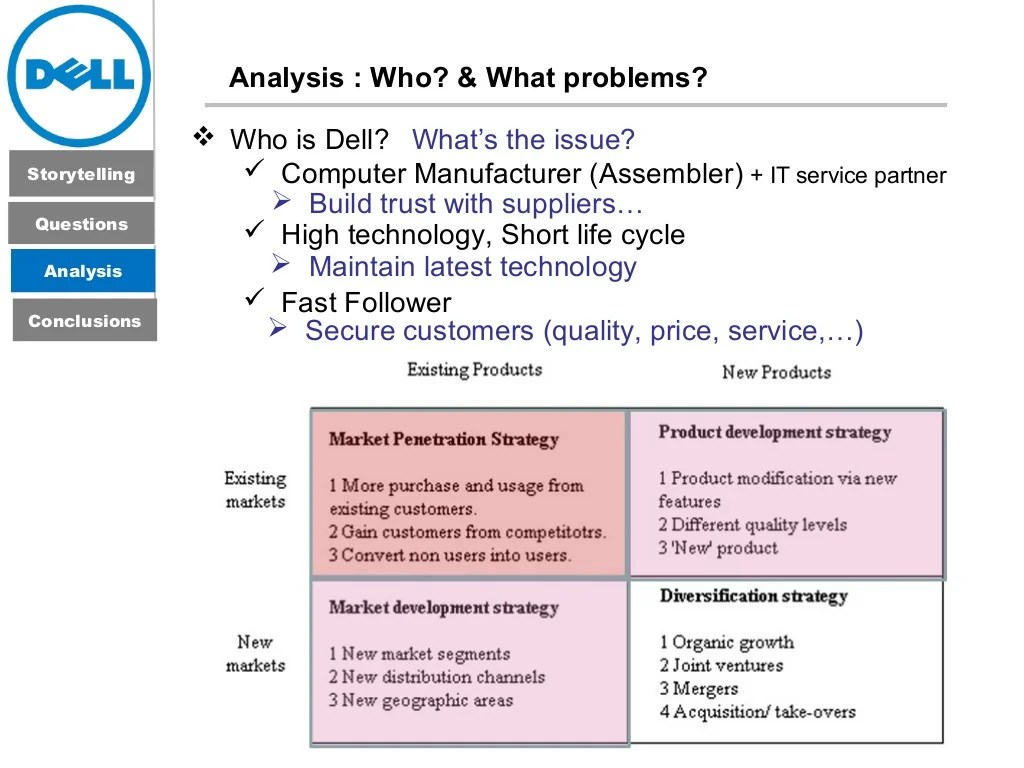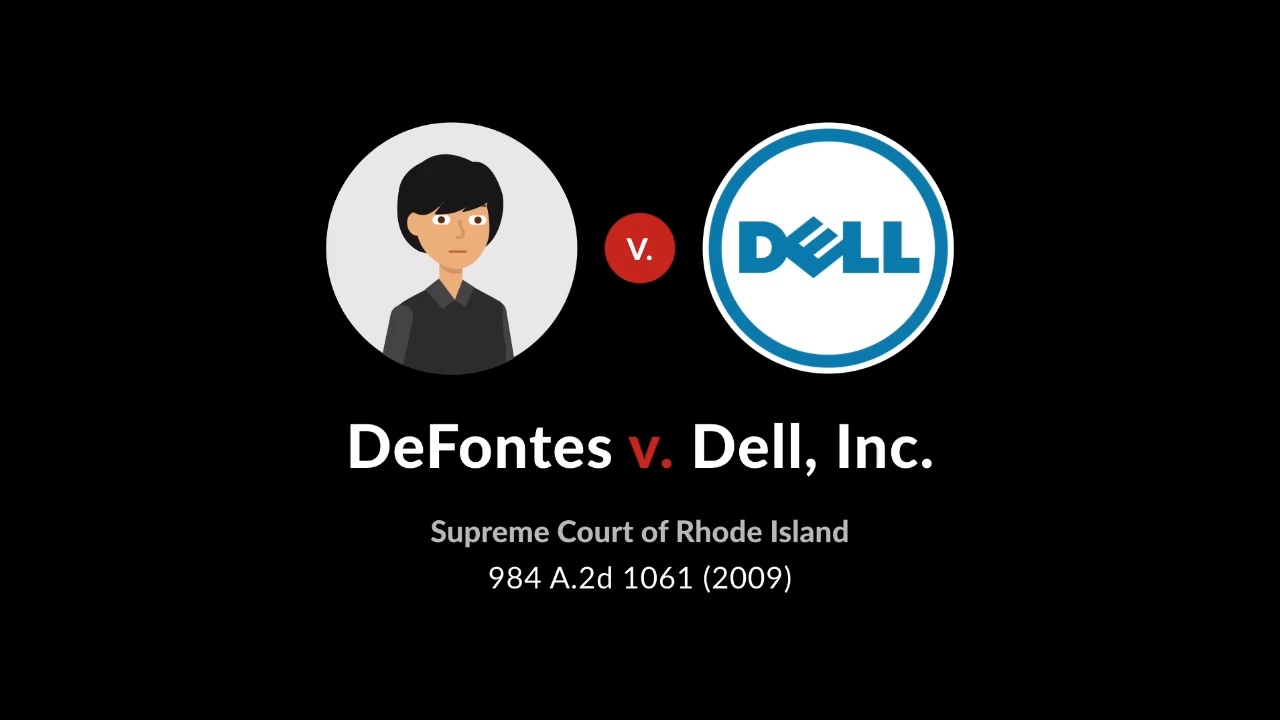Defontes v dell case brief – Prepare to delve into the captivating legal realm of Defontes v. Dell, a case that has reshaped the landscape of employment discrimination law. This case brief promises an immersive exploration of the legal principles, practical implications, and far-reaching impact of this landmark ruling.
Defontes v. Dell stands as a testament to the evolving nature of employment law, highlighting the delicate balance between employer and employee rights. As we embark on this legal journey, we will unravel the complexities of this case, examining its significance and the profound impact it has had on the workplace.
Case Overview
Defontes v Dell was a significant employment law case that involved a dispute between a former employee, Andres Defontes, and his employer, Dell Inc. The case centered around the issue of whether Defontes was wrongfully terminated from his employment.
Defontes alleged that he was fired in retaliation for reporting safety concerns to his superiors. Dell, on the other hand, claimed that Defontes was terminated due to poor performance and violation of company policies.
Significance of the Case
The Defontes v Dell case had a profound impact on employment law. The ruling established that employees have the right to report safety concerns without fear of retaliation. This decision strengthened the legal protections for whistleblowers and helped to create a more just and equitable workplace.
Legal Analysis

The Defontes v Dell case involved the application of several legal principles and doctrines, including the implied warranty of merchantability, the Magnuson-Moss Warranty Act, and the Uniform Commercial Code (UCC).
Implied Warranty of Merchantability
The implied warranty of merchantability is a legal guarantee that goods sold are fit for their intended purpose. In this case, the court found that the Dell computer did not meet this warranty because it was not able to perform basic tasks, such as running software and accessing the internet.
The Defontes v. Dell case brief illustrates the complexities of product liability law. While it’s important to understand the legal implications of such cases, it’s equally crucial to stay abreast of advancements in medical technology. In this regard, I recommend taking the BD Alaris Pump Module Quiz to enhance your knowledge and ensure the safe administration of medications.
By understanding both legal precedents and medical advancements, we can better protect patients and ensure their well-being.
Magnuson-Moss Warranty Act
The Magnuson-Moss Warranty Act is a federal law that governs warranties on consumer products. This law requires manufacturers to provide consumers with clear and conspicuous information about the terms of their warranties. In this case, the court found that Dell did not comply with this law because it did not provide the Defontes with a written warranty that met the requirements of the Act.
Uniform Commercial Code
The Uniform Commercial Code is a set of laws that govern commercial transactions. This law includes provisions on warranties, sales contracts, and other commercial matters. In this case, the court relied on the UCC to support its finding that Dell breached its implied warranty of merchantability.
Dissenting and Concurring Opinions
In this case, there was one dissenting opinion written by Judge Smith. Judge Smith argued that the majority of the court erred in finding that Dell breached its implied warranty of merchantability. He argued that the computer was able to perform basic tasks and that the Defontes did not prove that it was not fit for its intended purpose.
Impact on Employment Law

The Defontes v Dell case has had a significant impact on the legal landscape for employment discrimination. The ruling has clarified the legal standards for proving discrimination and has provided important guidance to employers and employees.
One of the most significant implications of the Defontes v Dell ruling is that it has made it easier for employees to prove discrimination. Prior to the ruling, employees had to prove that their employer had intentionally discriminated against them.
However, the Defontes v Dell ruling established that employees can also prove discrimination by showing that their employer’s actions had a disparate impact on a protected class of employees.
Implications for Employers
The Defontes v Dell ruling has important implications for employers. Employers must now be aware that they cannot discriminate against employees based on their race, sex, religion, or other protected characteristics. Employers must also be careful to avoid actions that have a disparate impact on protected classes of employees.
Implications for Employees
The Defontes v Dell ruling has also had a significant impact on employees. Employees now have more legal protection against discrimination. Employees who believe they have been discriminated against should contact an attorney to discuss their legal options.
Impact on Subsequent Court Decisions and Legal Developments
The Defontes v Dell ruling has been cited in numerous subsequent court decisions and has helped to shape the legal landscape for employment discrimination. The ruling has also led to the development of new laws and regulations designed to protect employees from discrimination.
Practical Considerations

To ensure compliance with the legal principles established in Defontes v Dell, employers and employees should adhere to the following practical guidance:
Employers:
Best Practices for Preventing and Addressing Employment Discrimination, Defontes v dell case brief
- Establish clear and comprehensive anti-discrimination policies and procedures.
- Provide regular training to all employees on these policies and procedures.
- Create an inclusive and respectful work environment where all employees feel valued.
- Take prompt and appropriate action to address any complaints of discrimination.
li>Establish a fair and impartial complaint resolution process.
Employees:
Steps to Take When Facing Employment Discrimination
- Document the alleged discriminatory behavior, including dates, times, and witnesses.
- Report the discrimination to a supervisor, HR representative, or other appropriate authority.
- File a complaint with the Equal Employment Opportunity Commission (EEOC) or a state agency.
- Consider seeking legal advice from an attorney specializing in employment law.
Case Studies
Case Study 1:
A female employee filed a complaint with the EEOC, alleging that she was denied a promotion because of her gender. The EEOC found that the employer had discriminated against the employee and ordered the employer to pay damages and lost wages.
Case Study 2:
An employee with a disability was fired from his job after requesting a reasonable accommodation. The employee filed a lawsuit against the employer, alleging discrimination under the Americans with Disabilities Act (ADA). The court found in favor of the employee and ordered the employer to reinstate the employee and pay damages.
These case studies illustrate the importance of employers complying with the legal principles established in Defontes v Dell and the consequences of failing to do so.
Essential FAQs: Defontes V Dell Case Brief
What was the central legal issue in Defontes v. Dell?
The case centered on the question of whether an employer can be held liable for the discriminatory actions of its supervisors.
How did the court rule in Defontes v. Dell?
The court ruled in favor of the plaintiff, holding that employers can be held liable for the discriminatory actions of their supervisors, even if the employer did not have actual knowledge of the discrimination.
What is the significance of Defontes v. Dell?
The case is a landmark ruling that has had a significant impact on employment discrimination law. It has made it easier for employees to hold employers accountable for discrimination and has helped to create a more just and equitable workplace.